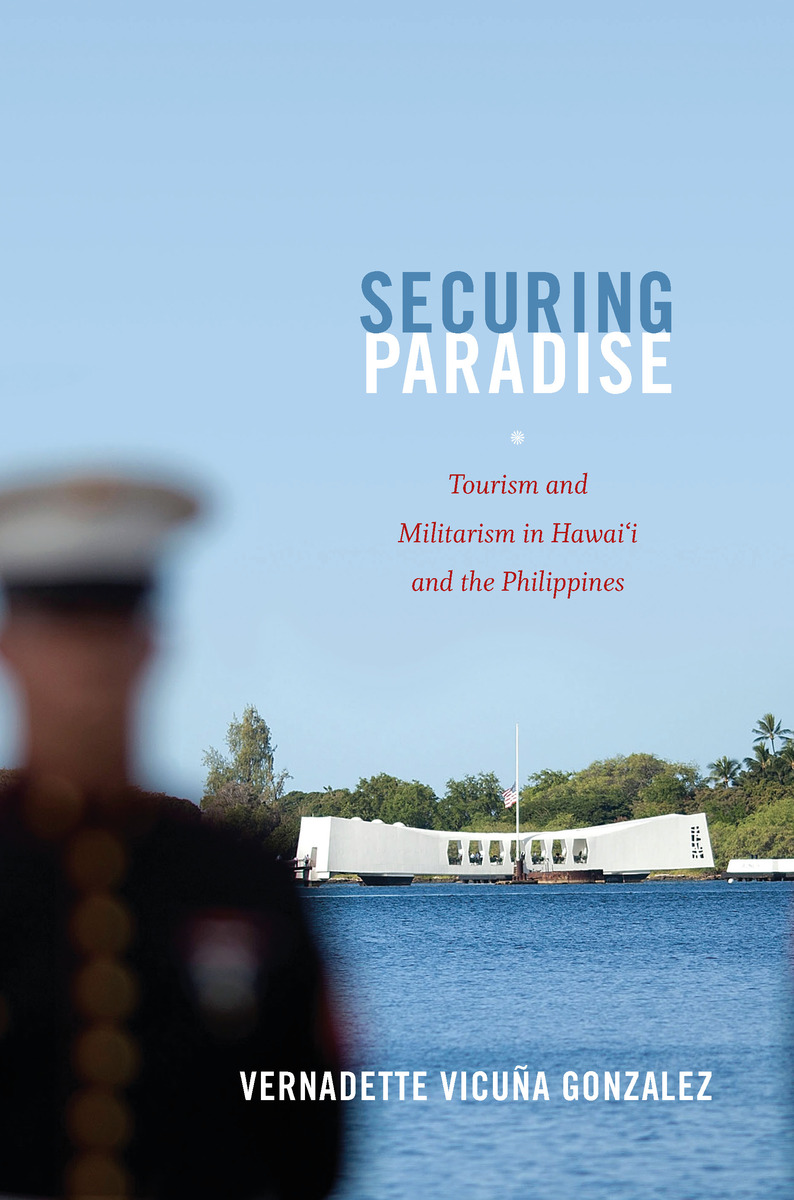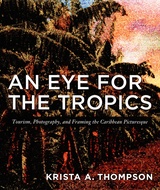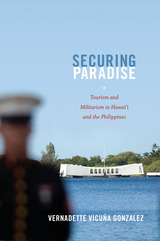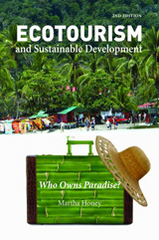Securing Paradise: Tourism and Militarism in Hawai'i and the Philippines
Duke University Press, 2013
eISBN: 978-0-8223-9594-2 | Paper: 978-0-8223-5370-6 | Cloth: 978-0-8223-5355-3
Library of Congress Classification G155.U6G625 2013
Dewey Decimal Classification 338.4791599
eISBN: 978-0-8223-9594-2 | Paper: 978-0-8223-5370-6 | Cloth: 978-0-8223-5355-3
Library of Congress Classification G155.U6G625 2013
Dewey Decimal Classification 338.4791599
ABOUT THIS BOOK | AUTHOR BIOGRAPHY | REVIEWS | TOC | REQUEST ACCESSIBLE FILE
ABOUT THIS BOOK
In Securing Paradise, Vernadette Vicuña Gonzalez shows how tourism and militarism have functioned together in Hawai`i and the Philippines, jointly empowering the United States to assert its geostrategic and economic interests in the Pacific. She does so by interpreting fiction, closely examining colonial and military construction projects, and delving into present-day tourist practices, spaces, and narratives. For instance, in both Hawai`i and the Philippines, U.S. military modes of mobility, control, and surveillance enable scenic tourist byways. Past and present U.S. military posts, such as the Clark and Subic Bases and the Pearl Harbor complex, have been reincarnated as destinations for tourists interested in World War II. The history of the U.S. military is foundational to tourist itineraries and imaginations in such sites. At the same time, U.S. military dominance is reinforced by the logics and practices of mobility and consumption underlying modern tourism. Working in tandem, militarism and tourism produce gendered structures of feeling and formations of knowledge. These become routinized into everyday life in Hawai`i and the Philippines, inculcating U.S. imperialism in the Pacific.
See other books on: Hawai'i | Hawaii | Militarism | Philippines | Tourism
See other titles from Duke University Press





























